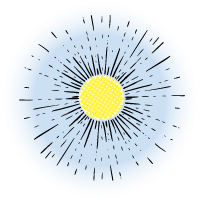‘Not just a tool, but a symbol’: UW Medicine celebrates first day of school with stethoscope ceremony
Sixty future physicians were presented with stethoscopes on Thursday in a celebratory ceremony at the University of Washington School of Medicine in Spokane. The class of 35 women and 25 men will now embark on four years of exploring and encountering the medical field and local communities.
Unlike most medical programs, the students in Spokane will learn from and care for patients outside the location of their school.
Dr. Darryl Potyk, Chief of Medical Education for the UW-Gonzaga Health Partnership, hopes that by reaching a broad range of communities, medical students will witness “the amazing breadth and depth of clinical opportunities.”
To mark the students’ journey into medicine, six medical school alumni gave the future physicians a stethoscope during the ceremony. Potyk called it “the tool you’re going to use for the rest of your life.”
UW’s Spokane branch is the only school within its reach across five states to give stethoscopes on students’ first day. The medical school serves Washington, Wyoming, Alaska, Montana and Idaho. Together, the states are a medical education consortium called WWAMI.
Emma Kerkering is a first-year stethoscope recipient. She chose UW in part because of the WWAMI program. The 23-year-old also looks forward to engaging with her cohort over the next few years.
“They seem like they’re going to be awesome people to grow and learn with,” she said.
Kerkering and fellow first-year medical student Tim Onisor, 25, have long regarded the institution as “a powerhouse in the medical community,” she said.
Onisor, a UW Seattle graduate, grew up in an underserved area but knew of the school’s renowned opportunities.
He recalls that he “didn’t have medicine within (his) community.” In pursuing an MD, he seeks to “help bridge that gap” between excellent medical care and often-forgotten people.
Potyk said reviewing and admitting applicants like Kerkering and Onisor means discovering their “why” for medicine. But it’s beyond a desire to help people.
“There are various fields in which you can help people,” he said. And so he encourages students to find “why (they) want to help people in this way?”
The class is full of a diverse group of hopeful physicians. Potyk said they do, however, share a few common traits.
“They’re all very, very accomplished,” he said. “They’ve demonstrated that and their curiosity, integrity and desire to be a doctor.”
